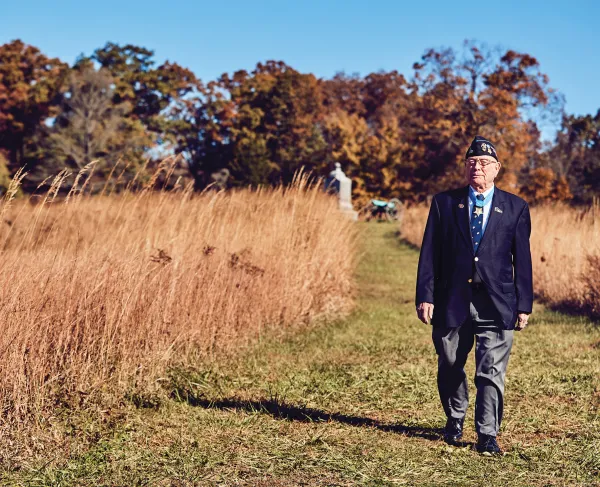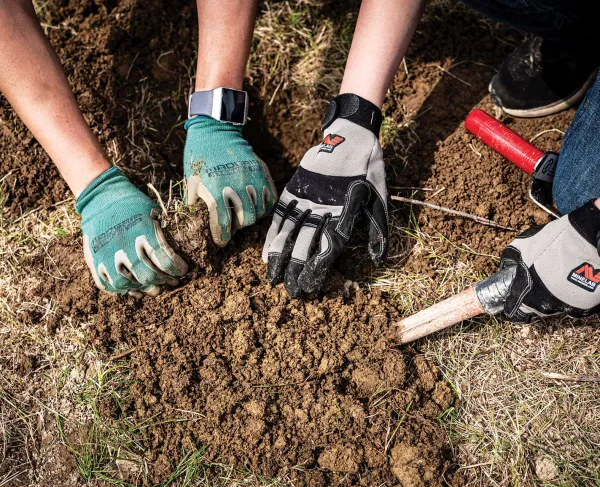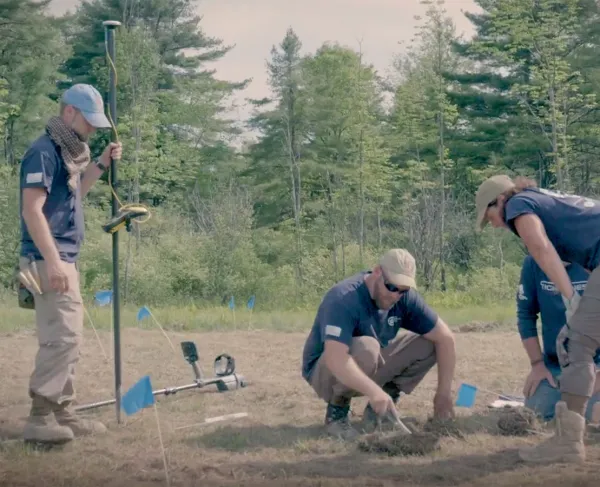American Battlefield Trust and American Veterans Archaeological Recovery Join Forces to Honor Military Service Across Centuries
Mary Koik, (202) 367-1861 x7231
Colleen Cheslak, (202) 367-1861 x7234
(Washington, D.C.) — Building upon a partnership that has twice placed modern military veterans within ambitious archaeological undertakings on Revolutionary War battlefields, the American Battlefield Trust has pledged $10,000 to support an American Veterans Archaeological Recovery (AVAR)-led project aimed at answering lingering questions about an important historical battle on American soil. In February, investigation will begin outside San Antonio, in an effort to determine the true location of the Battle of Medina, which — despite being the bloodiest battle in Texas history — has long eluded historians.
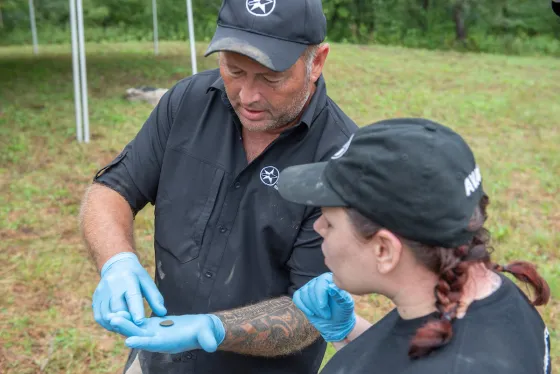
“The American Battlefield Trust understands keenly the power of place,” said organization president David Duncan. “Archaeology projects the historical record onto a physical space and can deepen, or even reshape, our understanding of past events. And when it is undertaken by the uniquely qualified team with AVAR, it takes on even greater significance.”
Transitional programs like AVAR help veterans reacclimate to civilian culture. The program puts former military personnel in a new kind of trench, in pursuit of a common cause. They receive training to pursue a civilian job for which they are predisposed to be well-equipped, demonstrating that skills gained in the military are still relevant. With archaeology, they see a tangible example of their skills being useful and relevant. And when that work is performed on a battlefield, where the veterans bring a level of understanding and connection that no civilian can hope to possess, the impact is even more profound. In addition to the Trust, AVAR has also worked with likeminded organizations that share a commitment to honoring those who have served, including the National Park Service and the Defense POW-MIA Accounting Agency.
“Battlefields resonate for veterans,” said AVAR CEO Dr. Stephen Humphreys. “Over the last six years, we have found that when we combine the emotional impact that conflict sites provide with professional archaeological training, the result for our veterans is profound. We get a veteran who is uniquely capable of interpreting that site, and that veteran gets to connect not only with other veterans in the present day but also with those who served in generations past.”
The August 18, 1813, Battle of Medina was a critical moment in the Mexican War of Independence against Spanish rule. A diverse republican army consisting of Tejano-Mexicans and Tejano-Americans, Americans (including a veteran of the Revolutionary War), Euro-Mexicans (Criollos), former royalist soldiers, Native Americans and at least one enslaved Black man was destroyed by a superior Spanish force. Republican casualties, most executed following the resounding defeat, remained unburied for years; Antonio López de Santa Anna, present with the victors as a young lieutenant, later replicated the decision to offer no quarter to his opponents when he led Mexican forces against the Alamo and Goliad in 1836.
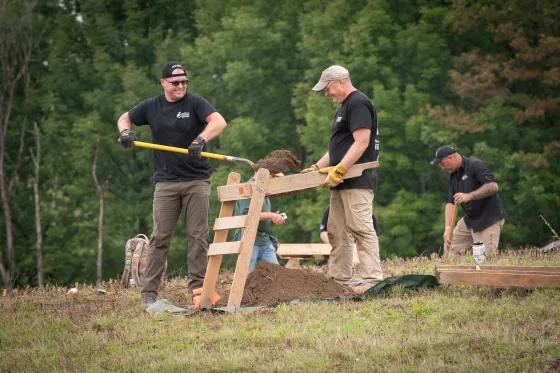
At Medina, AVAR will be collaborating with local historical expert Brandon Seale, producer of the ‘A New History of Old Texas’ podcast, and archaeologist and historian Kay Hindes. Work will be carried out with the support of the County of Atascosa and the Texas Historical Commission, with technical supervision provided by Dr. Raymond Mauldin of the Center for Archaeological Research at the University of Texas at San Antonio.
In two previous seasons, Trust contributions placed AVAR volunteers alongside National Park Service archaeologists on an award-winning interdisciplinary cultural resources team at Saratoga National Historical Park. The twin battles fought there in 1777 turned the tide of the American Revolution, prompting the first-ever surrender of a British field army and securing critical French intervention in the war. Working alongside the Defense POW-MIA Accounting Agency, AVAR volunteers have assisted in projects to recover the remains of U.S. servicemen downed in WWII plane crashes over the U.K. and Sicily.
The American Battlefield Trust understands that selflessness, valor and patriotism are present in all those who have served this nation in uniform, regardless of when or where they served. The Trust’s Warrior Legacy project showcases the deep connections that the modern military retains to its historic forebearers. In doing so, we emphasize how the landscapes of historic battlefields can be used to bridge those eras, including through military education and staff, as well as rehabilitation archaeology through AVAR.
Donations in support of the Trust’s archaeology work — alongside AVAR and more broadly on other battlefields — may be made at www.battlefields.org/supportarchaeology.
About the American Battlefield Trust
The American Battlefield Trust is dedicated to preserving America’s hallowed battlegrounds and educating the public about what happened there and why it matters today. The nonprofit, nonpartisan organization has protected nearly 54,000 acres associated with the Revolutionary War, War of 1812 and Civil War. Learn more at www.battlefields.org.
About the American Veterans Archaeological Recovery (AVAR)
American Veterans Archaeological Recovery (AVAR) uses archaeology projects to help veterans find a new sense of mission and purpose, build community, and learn vocational skills. AVAR has put over 60 veterans on excavations in the USA, UK, and Israel since inception, thanks to a National Geographic Education grant. Learn more at www.americanveteransarchaeology.org.
About the Center for Archaeological Research (CAR) at UTSA
Founded in 1974, the Center for Archaeological Research (CAR) at the University of Texas at San Antonio (UTSA) is the preeminent cultural resource management organization active in Central and South Texas. CAR conducts research throughout Texas, carries out archaeological surveys and excavations for federal, state, and local agencies, and provides students with training in archaeological field work, laboratory analysis, and public outreach. The CAR laboratory is a Texas Historical Commission designated curatorial repository that houses artifacts and records from prehistoric and historic sites in San Antonio, South Texas, and surrounding regions. Learn more at http://car.utsa.edu/index.html.
